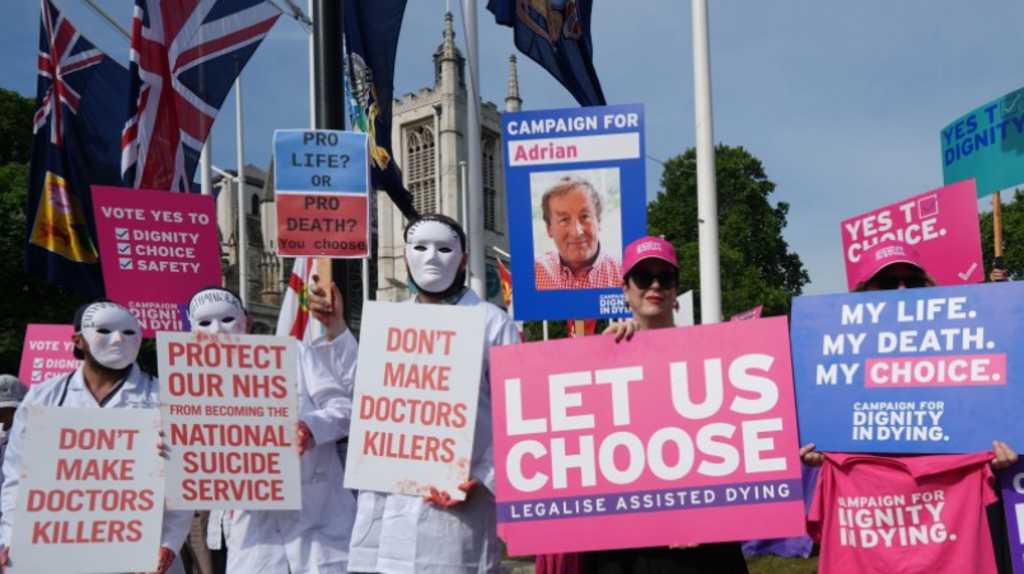Members of the House of Lords have tabled more than 900 amendments to the proposed law on assisted dying, ahead of a key debate scheduled for Friday.
Sources indicate that the number of proposed changes, reportedly totaling 942, is unprecedented. Opponents, however, maintain that significant revisions are necessary to ensure the safety and efficacy of any such scheme.
The sheer volume of amendments has prompted a letter from 65 peers in support of the bill, expressing concern over potential delaying tactics.
Those opposing the bill are being urged to avoid “frustrating” the progress of the legislation, which has already secured approval from Members of Parliament.
The House of Commons passed the Terminally Ill Adults (End of Life) Bill in June, and it successfully completed its initial stage in the Lords in September.
The subsequent detailed examination of the bill was postponed following an amendment proposed by Baroness Berger of Labour, allowing a committee of peers to further scrutinize the legislation.
Parliamentary sources report that officials worked into the early hours of Thursday to compile the suggested changes to the bill, submitted ahead of the committee stage, which commences on Friday.
Reports suggest that seven opponents of the bill have collectively submitted 579 amendments.
Parliamentary authorities indicate that while some bills have seen a higher total number of amendments tabled at the committee stage, this could set a record for the number submitted in the initial list of proposed changes.
They suggest it is almost certainly unprecedented for this stage of a private member’s bill, which has been put forward by Labour MP Kim Leadbeater rather than the government.
Experts such as Matthew England, a researcher at the Hansard Society, have stated that the number of amendments “does appear to be a record, at least in the recent past”.
Others have drawn comparisons to the bill pertaining to the UK’s departure from the European Union, which had a total of 820 amendments.
One peer in favor of the legislation told the BBC that the number of amendments “looks like a delaying tactic to me… It’s obviously not a coincidence.”
Defending the large number of amendments, Baroness Luciana Berger, an opponent of assisted dying, told the BBC that evidence presented to the select committee “strongly refuted any suggestion this bill is either safe or workable”.
“This bill is full of holes which vulnerable people will fall through and be harmed if peers don’t act to change and amend it,” she added.
However, signatories to the letter emphasized that the bill had “already undergone unprecedented scrutiny” and “offers dying people the choice of a safe, dignified end while strengthening protections for the vulnerable”.
Former Royal College of Nursing president Baroness Rafferty was among the 65 peers who signed, along with scientist and broadcaster Lord Winston, former Labour leader Lord Kinnock, and former Whitehall chief Lord O’Donnell.
They urged opponents to focus on refining the bill to identify areas where “genuine improvements can be made, while respecting both the will of the Commons and the overwhelming support of the public”.
In response to the letter, a source close to peers concerned about the bill stated: “This letter is making claims directly contradicted by the evidence provided in the last few weeks at the Lords select committee by the royal colleges, professionals and independent statutory bodies.”
“Evidence and facts are vital when crafting good legislation.”
The bill is being treated by parties as a matter of conscience, meaning they will not instruct their MPs or peers on how to vote.
The bill will become law in England and Wales only if both the House of Commons and the House of Lords agree on the final drafting of the legislation, requiring approval before the current parliamentary session concludes next spring.
If enacted, the government would have four years to implement an assisted dying service, potentially delaying the first assisted death until 2029/30.
The legislation proposes allowing terminally ill adults with less than six months to live to apply for assisted death.
This would be contingent upon approval from two doctors and a panel comprising a social worker, a senior legal figure, and a psychiatrist.
Sign up for our Politics Essential newsletter to read top political analysis, gain insight from across the UK and stay up to speed with the big moments. It’ll be delivered straight to your inbox every weekday.
Helen Newlove fought tirelessly for crime victims following the murder of her husband Garry in 2007.
Baroness Helen Newlove has been remembered as a commissioner who stood up for all victims.
Lord Sahota blames a “toxic political environment” for a spate of crimes in the West Midlands.
Baroness D’Souza sought to influence Met chief Sir Mark Rowley, a Lords report found.
The project to rebuild an entrance into Parliament ran over budget and over time by 100 weeks.

